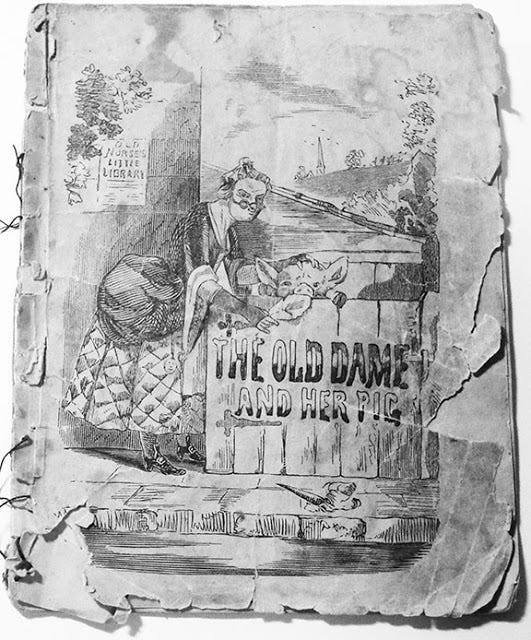On the idea that group loyalty is a primitive holdover
Cavemen! IT nerds! Micro theory! Piggie picture!
Here’s an argument about the Covid pandemic: by vaccinating their own children and young people before providing help for the developing world, the rich nations are committing a serious moral crime, which will lead to thousands of needless deaths.
Without either making this argument or condemning it, I just want to note how rarely it has actually been heard. Some international organizations have pushed the point, but domestically, there’s been a loud silence. That is surprising, because rich nations are not short of proud, indeed vociferous, internationalists. The contrast is strong if you look at reactions to proposed cuts to international aid. Cut a budget which has little evidence for its effectiveness and may actually harm its targets? Fury on social media, and John Major and 30 Tory MPs line up to oppose you. Don’t fund a simple intervention, practically guaranteed to save lives within weeks? Tumbleweed.
Sense can be made of this paradox as follows. Those who theoretically believe that nationalism is wicked and irrational, in fact recognize its simple commonsense basis in our collective interests. We vote politicians in so as to concern themselves with our welfare. Yes, vaccinating Indian 50 year olds instead of UK 30 year olds would almost surely save more lives. But any statesman proposing that should apply for a job in an NGO — and after the next election, he would likely have the free time to spare.
The logic applies more generally. There is a widespread idea, or cliché or meme, that in-group loyalty is the psychological equivalent of the appendix: an organ that was once useful, when we were in tiny hunter-gatherer bands, but now can only do harm. It turns up in Chris Paley’s new book, Beyond Bad, which controversially argues against the very idea of morality, partly because morality is intrinsically parochial. Or in any number of journalistic articles, like this one in the Guardian.
I think this is horse, and to show why I’ll write you a simple, general story, or as economists would call it, a model. The point of the story/model is that in-group loyalty is a necessary social glue for groups. Groups didn’t die out in the Pleistocene: they are basic to economic and social life, from choirs to rugby teams to workplaces. Perhaps academics, who often inhabit large, comfortable organizations where many services are laid on as if by magic, find it especially hard to remember this.
The story
Two IT companies are selling a new kind of database. To explain the new technology to their customers, they need salespeople. Each customer has a 1% chance of benefiting from the database. (The odds are so small to avoid a clever clogs industrial organization person saying “why not just sell the whole business to the salesperson?” That’s ruled out because a salesperson can’t live on a 1% chance of profit.)
The two companies’ products are slightly different and suit different customers. If a target customer gets the right product, it benefits by $3m. If it gets the wrong product, the benefit is only $2m. The IT company makes a profit of $500K on each sale.
Sales is complex and subtle, it’s about building relationships, and so the salespeople’s effort can’t easily be monitored. The companies must rely on their salespeople’s goodwill!
Suppose that the salespeople are homo economicus, who only care about their paycheck. They will make minimal effort. In fact, it’s not even worth the companies’ while to hire them. The products remain unsold, the customers’ need is unmet, and everyone is worse off. This is not news, folks! There’s a big literature on employment as a gift exchange, motivated by just such cases.
Now here’s the rub. Suppose the salespeople are global altruists. They care only for the wellbeing of all! In particular, they care equally for the wellbeing of their own company, the rival IT company, and the customers. In this case, after building a successful relationship with each customer, they will recommend the product that suits the customer best. Maybe their own firm’s, maybe the other’s, it’s 50-50. That’s great for the customers, who always get the best product. Unfortunately it is not so good for their employers, who are paying someone to work for the other firm half the time. In fact, with only a 0.5% hit rate — half of 1% — they again can’t afford the hire. So again, the products remain unsold, the customers’ need is unmet, and the pig can’t get over the stile to market.
The answer’s obvious: hire salespeople who are loyal to the firm. These guys will always recommend their own firm’s product. Sometimes the customers don’t get the best solution, sure. But the firms now make enough profit to hire the salespeople in the first place. And the second best database is better than none. Everyone wins, and this is only possible because the salespersons’ altruism is partial.
Responses to two criticisms.
1. Hey, this is also not news. The work on employment as a gift exchange models reciprocity from the worker to the firm! So that is just another word for group loyalty.
Response: yes it is. In fact, the social psychologist Toshio Yamagishi called groups a “container of generalized reciprocity”. I’m fine that this isn’t new: I’m not trying to publish it. I just want you to admit that group loyalty is an essential glue of collective action, which is the basis for humanity’s biggest achievements. Fine, group loyalty is reciprocity! Just don’t say that in-groups are a tragic holdover from our evolutionary past. You know what else comes from our evolutionary past? Feet. Useful for cavemen… useful for us.
2. The two firms should merge. Then you wouldn’t need group loyalty: global altruism would be enough. And the salesmen could always recommend the best product.
Sure. That’s a solution, and what it tells us is that, in a world where having only one organization is efficient, we wouldn’t need groups! That has always been the socialist dream, so, yeah. There’s certainly nothing self-contradictory about that story, and if you buy it, then I’d like to sell you a — hah! — revolutionary database.
Conclusion
Real organizations only work because their members are loyal to them. Parochialism isn’t an outdated feature of morality. It’s of the essence of morality, as a fair exchange between a defined set of people. That applies to companies, and there’s a vast “company culture” literature in management science on how to elicit this kind of loyalty. It applies to nations too! Nations are the most basic organization. We trust them to keep us alive. And when push comes to shove, we have to care about them too. If we don’t, they go unmaintained, and then — slowly, quickly, or the one then the other — they crumble.
That’s my story. If I was bored or uninspired enough, I’d fill in the details, call it a Bayesian Nash Equilibrium, and publish it somewhere. If you want to do that, go ahead, just thank me in a footnote. Actually, thank me in a footnote stating “sixties liberalism is destroying Western culture”. My terms are always reasonable.
(On a similar topic, see my Open and Shut.)
If you liked this piece, then I would love you to do three things:
Subscribe to this newsletter. It’s free and spam-free.
Share Wyclif’s Dust on social media, or forward it via email. By telling your friends and/or followers, you’ll be doing me a huge favour.
Read about the book I’m writing. It’s called Wyclif’s Dust, too. You can download a sample chapter.




Replace the word “group” with “community” and the same people who hate the idea start liking it, no?